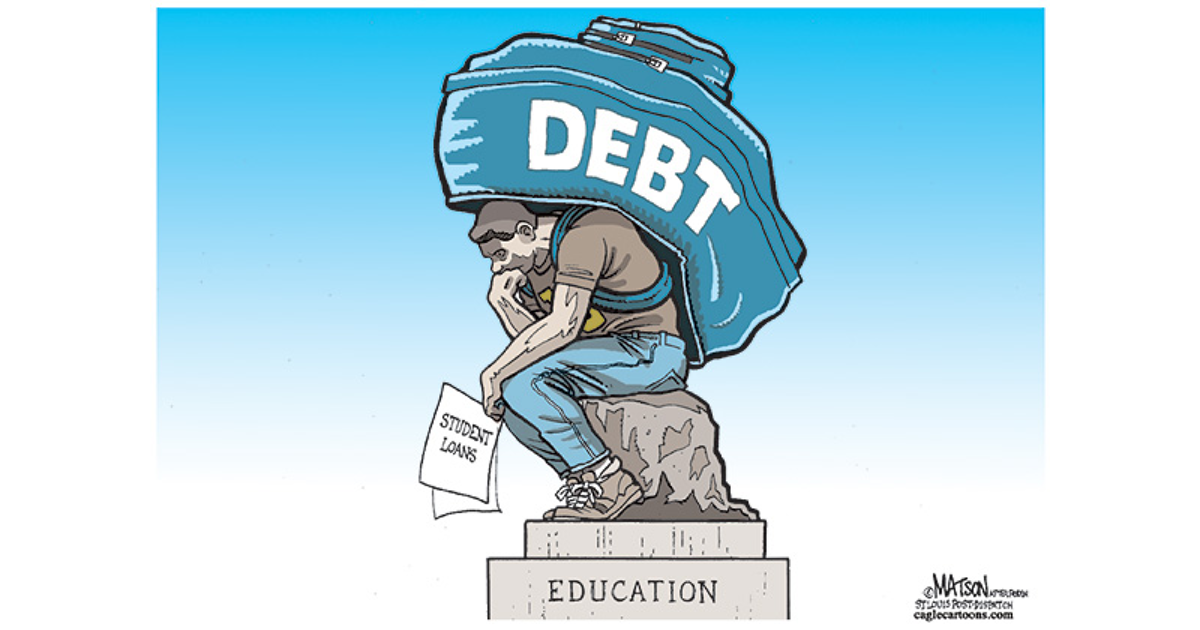|
President Trump's new Nuclear Posture Review is expected to call for new "low-yield" nuclear weapons and an expansion of the scenarios in which the US may use a nuclear "first strike." Is this a good idea?
By Ron Paul
Last week President Trump urged Congress to reassert its constitutional authority to direct how federal agencies spend taxpayer dollars. Ironically, many constitutional conservatives and libertarians disagree with the president. The reason is, President Trump wants Congress to reassert its authority by bringing back earmarks. Earmarks are line items in spending bills directing federal agencies to spend federal funds on specific projects in a representative or senator’s district or state. Congress ended the practice of earmarks several years ago after a public outcry fueled by a widespread misunderstanding of the issue. Earmarks are added to spending bills after the spending levels have been determined. Therefore, earmarks do not increase federal spending. What earmarks do is limit the federal bureaucrats’ ability to decide how to spend taxpayer money. When I served in Congress, I was amazed when self-proclaimed constitutionalists complained about how earmarks prevented funding of federal bureaucrats’ priorities. These “constitutionalists” seem to have forgotten that the Constitution gives Congress sole authority over deciding how taxpayer dollars should be spent. My support for earmarks in Congress did not add one penny to the spending in the bills. I believed that some of the tax money sent to Washington should actually make it back to Congressional districts rather than remain in the hands of Washington bureaucrats. In the end, I always voted against final passage of the bloated spending bills. Some call earmarks a gateway drug to big spending. They point to how congressional leadership denied earmarks to members unless the members voted for big spending and other anti-liberty legislation. It is true that congressional leadership used earmarks to reward and punish members. During my years in Congress, earmarks for my district were stripped from bills in an (unsuccessful) attempt to make me stop voting against unconstitutional legislation. Congressional leaders do not need earmarks to reward or punish members. They can, for example, deny plum committee assignments to those who refuse to toe the party line, or discourage donors from supporting them. Presidents can still use the promise of federal funds to influence congressional votes. “Presidential earmarks” were crucial to passing Obamacare, and President Trump has threatened to withhold aid from states whose senators oppose his agenda. The removal of earmarks has given the president even greater influence over the legislative branch! The fact that there are more representatives and senators willing to vote against big government than in past years has nothing to do with the lack of earmarks. Instead, the liberty movement has led to more liberty-minded members being elected to the House and Senate. While the ideas of liberty are growing in popularity, the majority of the people and certainly most politicians still believe the US government should run the economy, run the world, and run our lives. This misplaced faith in big government, not the presence of earmarks, is why most politicians vote for big spending. No politician ever said, “Now that I can’t receive earmarks, I am abandoning my support for the welfare-warfare state.” Earmarks are a way for elected representatives to ensure their constituents’ tax dollars are spent in a manner that matches constituent priorities. Earmarks do not by themselves expand government. Those who oppose earmarks should work to stop so many Americans from demanding government-provided economic and personal security. Earmarks are not the cause of runaway spending, and removing them has done little or nothing to shrink government and regain our liberties.
By Chris Rossini
Watch out when government says that it's coming to "help," or that it's going to make something "more affordable." Whenever those words leave a politician's lips, a major tragedy is on its way. Foreign policy "help" and domestic policy "help" are two sides of the same false-promise coin. It can't happen, and it won't happen. Abroad, when the U.S. government says it's going to bring "freedom" to another nation, it ends up destroying the nation, killing untold numbers of people and producing chaos. At home, when the U.S. government says it'll "help" make a college education "more affordable," it ends up burying kids with enormous debt, and sending the price of a college education upward into the stratosphere! A report from the Brookings Institute tells us that about 40% of student loan borrowers will default by 2023. In other words, throwing over $1 TRILLION at the university "system" in order to make it "more affordable" and "more accessible" backfired completely. When you throw $1 trillion at something (anything) it's going to drive up prices dramatically. That's exactly what has happened with college degrees. It's imperative that the role of government is reconsidered in America. Government (its very existence) is a negation of Liberty. At most, if a government is going to exist, its power should be so weak that you barely know that it's there. Government should be tasked with protecting Liberty....Period...End of story. For example, if a private individual commits aggressive force or fraud against another, government steps in to punish the aggressor. Instead, what we have today is a situation where government itself has become the aggressor! It uses aggression under the guise of "helping." Government is not protecting Liberty, but wiping it out! A course correction is necessary, and that can only come with a change of ideas. No longer should government be viewed as either Santa Claus or Mother Teresa. It is neither. Government can't "help" without causing even more misery in its wake. Government is violent force. Real help can only come from voluntary institutions, or voluntary acts of individuals assisting one another.
Dr. Martin Luther King's stance against the Vietnam War led him to be shunned by much of the liberal establishment that applauded his work on civil rights in the US. Was challenging the US warfare state the third rail that cost MLK his life?
China has been accumulating gold for years, and are now taking steps to tie it to yuan. Interest rates in the U.S. are rising, and the Chinese are not so eager to keep piling up on U.S. dollars and U.S. Treasury debt. Ron Paul discusses on The Liberty Report!
By Jacob G. Hornberger
U.S. officials, led by President Trump, and accompanied by their acolytes in the U.S. mainstream press, are absolutely giddy over what they perceive as the success of U.S. sanctions against Iran and North Korea. With Iran, they are celebrating the fact that horrific economic conditions have led to sporadic protests across the country against the Iranian regime. With North Korea, they are saying that U.S. sanctions are starting to “bite,” which, they say, is what has caused North Korea to reach out to South Korea in diplomatic talks regarding North Korea’s participation in the Winter Olympics. The mindset of these people perfectly reflects Hannah Arendt’s phrase “the banality of evil.” In fact, with the possible exception of government programs like MKULTRA or syphilis experiments against unsuspecting African-Americans, it would be difficult to find anything more evil than the system of sanctions that has long been a core element of U.S. foreign policy. Let’s begin with North Korea. As a communist state, the government owns everything, and 99 percent of the citizenry works for the government. That means that every North Korean family’s survival depends on food, housing, healthcare, and a paycheck from the state. If the government has no money, then that means people starve to death because the government is their sole source of sustenance and income. Thus, to feed and sustain everyone, the government must come up with ways to collect revenue, for example, by heavily taxing North Korean workers who are permitted to work abroad or by engaging in some state enterprise. This is what socialism, in its purest form, is all about — the government taking care of people, not just with programs like Social Security, public schooling, subsidies, and Medicare, like here in the United States and taxing the productive citizens to pay for them — but rather in a total and complete manner, with the government owning everything and taking care of everyone, and with virtually everyone being an employee of the government. In North Korea, there is widespread equality insofar as wealth is concerned (which, of course, is a cherished goal of American socialists) because everyone is equally poor, desperately poor because of their socialist economic system. There is also in North Korea what Mises called “planned chaos.” That’s because central planning and state control of economic activity is inherently defective, given there are no free-market prices with which the planners are able to calculate when formulating their central economic plans. So, what is the aim of U.S. sanctions? The aim is to deprive the North Korean regime of revenues in the hopes of causing North Korean families to suffer even more than they already are suffering from socialism. Ideally, the aim of the sanctions is to kill ordinary North Koreans through starvation, which will then bring anger and dissatisfaction, which, presumably, will then bring down the regime and have it replaced with a pro-U.S. regime. That is the ultimate aim of U.S. sanctions — regime change. That’s the aim in Iran, North Korea, Cuba, Russia, and everywhere else that the U.S. has imposed sanctions. Alternatively, the aim is to force the targeted regime to accede to whatever the U.S. government wants. (All this from a regime and a mainstream press that prattles on about Russia’s supposed interference with America’s political system.) There is one important thing to keep in mind: the pawns in this scheme are the ordinary people — the families — the fathers, mothers, grandparents, children, grandchildren. They are the ones who U.S. officials are trying to kill as a way to achieve regime change in the targeted country. This phenomenon of evil was manifested perfectly in 1996, when U.S. Ambassador to the United Nations, Madeline Albright, was asked by “Sixty Minutes,” whether the deaths of half-a-million Iraqi children were “worth it.” What “Sixty Minutes” was referring to was the sanctions that U.S. officials had imposed and enforced against Iraq ever since the U.S. intervention in the Persian Gulf War. Like with North Korea, Iran, Cuba, and Russia today, the aim of the sanctions against Iraq was regime change. U.S. officials wanted to get rid of Saddam Hussein, who, ironically, had been their partner and ally in the 1980s when Saddam was killing Iranians in the Iraq-Iran War, and replace him with a pro-U.S. ruler. To achieve that goal — regime change — U.S. officials imposed one of the most brutal sanctions systems in history, one that, naturally, targeted Iraqi families. The combination of Iraq’s socialist economic system and the U.S. sanctions, along with the Pentagon’s intentional destruction of Iraq’s water-and-sewage treatment plants in the Gulf War, operated as a vise that squeezed the economic lifeblood out of Iraqi families. Those who bore the biggest brunt of the sanctions were Iraqi children, who began dying in masse from malnutrition and infectious illnesses, especially since the sanctions prevented Iraq from repairing the water-and-sewage treatment plants that the Pentagon had intentionally bombed and destroyed during the Gulf War. Thus, in 1996 “Sixty Minutes” asked Albright whether the deaths of half-a-million Iraqi children were “worth it.”
The US House today voted to extend Section 702 of the 2008 FISA Amendments. The section allows the government to spy on Americans without a warrant and to save their communications for possible prosecution of "future crimes." It is a violation of the Fourth Amendment. Can the US Senate stop this assault on the Constitution?
President Trump is expected to mandate that US embassies overseas become more aggressive salespersons for the US weapons industry. Are the Beltway arms dealers about to get a massive, taxpayer-funded sales force? And where might these weapons end up? In the hands of our enemies?
North and South Korea held bilateral discussions today for the first time in two years. In addition to agreeing to North Korean participation in next month's Olympic games, the two sides agreed to follow up with talks to relieve military tension on the peninsula. With the US out of the picture, is this the beginning of something significant?
|
Archives
July 2024
|




 RSS Feed
RSS Feed



